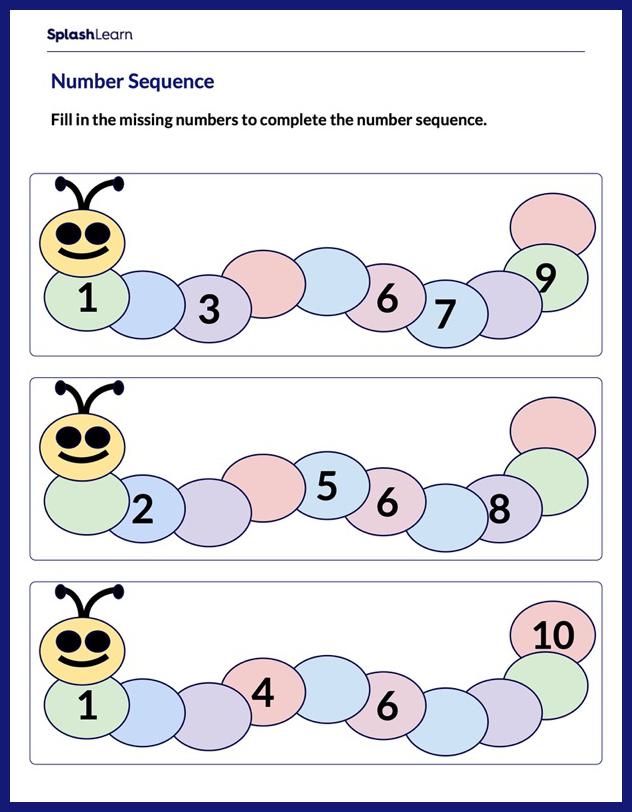What are Equal Parts of a Whole?
We can divide a whole into parts of same or different sizes. When a whole is divided fairly, the parts must be exactly the same size. This means that the parts are equal. If the parts are not the same size, they are called unequal.
Look at the square given below. The square is divided into 2 parts that are equal in size. We can see that the 2 parts combine to form the whole square.

By equal parts definition, we can state: This square has 2 parts which are equal in size and shape. Each equal part is half of the square.
Take a look at the table below. Some of the shapes are divided equally and some have unequal parts. In order to be equal, the parts must be of the same size.
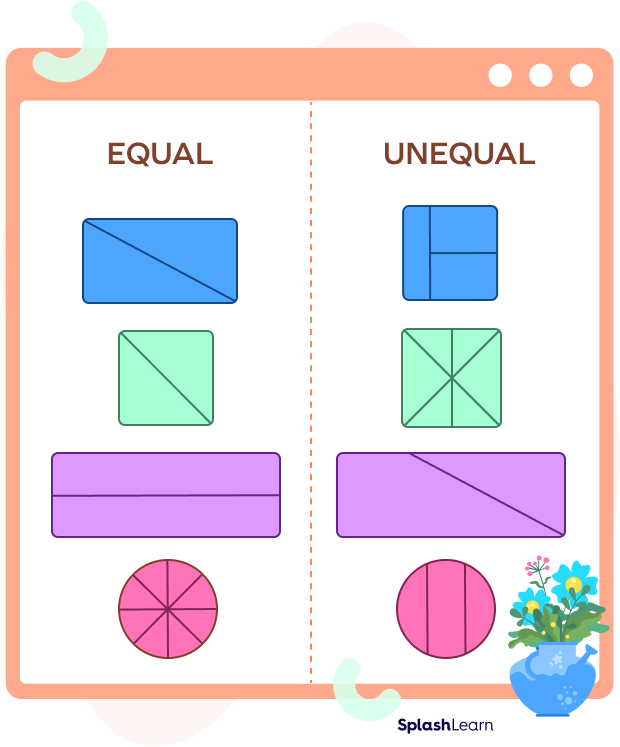
Now, let us understand the concept in detail with the help of some paper-cutting exercises.
How can a square sheet of paper be divided into two parts that are identical?
A square sheet of paper can be split horizontally or vertically. That gives us two halves.
Alternatively, it could be split corner to corner (diagonally) into two identical parts, as shown below.
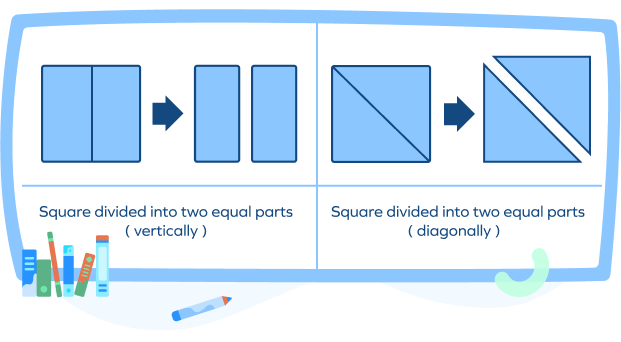
A square, when equally divided vertically, gives two identical rectangles. But when cut diagonally, it gives two equal triangles. Both are halves of the same square, but of different shapes. Recognize that equal parts of the same wholes can be of different shapes. So, what does equal parts mean? It simply means the whole is divided into parts of equal area.
Recommended Games
Names For Equal Parts of a Whole
Remember that equal parts in math play a major role when we start with fraction. To determine the fraction of a whole, the whole must be divided equally. when a shape is divided into two identical parts, the two parts make up the whole shape, and each part is called half of the whole. When a whole is divided into three parts which are equal in size, then each part is called one-third. The names of each part when a whole is divided equally is listed below:
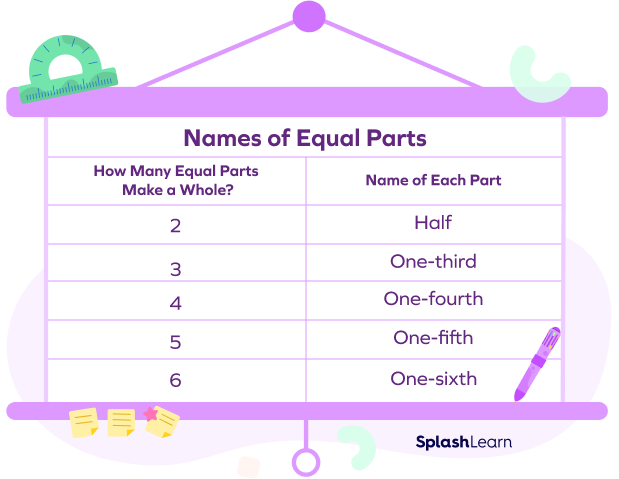
Recommended Worksheets
Fun Facts
1. Equal parts when put together makes the whole.
2. Equal parts must be of the same size or area, but can be different shapes.
Solved Examples
Example 1. Is the shape below divided equally?
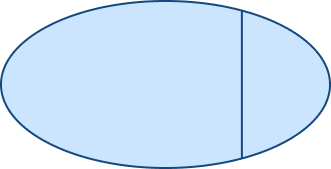
Solution: The shape is not fairly divided since the two parts are not equal. So, the given shape is not divided equally.
Example 2. How many equal parts does this whole have?
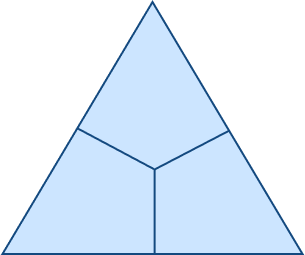
Solution: The triangle is divided into three parts that are identical. So, the given figure is divided into three parts that are equal.
Example 3. If Eric colored half of the square, how many fourths would he color?

Solution: The square is divided into 4 identical parts or fourths. Each part is one-fourth of the whole square.
If Eric colored half of the square, he would color 2 out of 4 identical parts or 2 parts. Hence, Eric would color two-fourths of the square.
Practice Problems
Equal Parts - Definition with Examples
What is the name of each part of the whole?

The given circle is divided into fourths. So, each part is one-fourth.
Which of the following shapes are divided into equal parts?




A Square Made of Four Equal Parts

How many equal parts does the shape shown below have?

The shape is divided into 4 unequal parts. Hence, the shape shows 0 parts which are equal.
Frequently Asked Questions
What are unequal parts?
Parts of a whole are said to be unequal when their sizes do not match each other.

In the above image, we see that a circle is divided into 4 parts. However, all the parts are not equal in shape and size.
What is each part of the whole called when it is made of 8 equal parts?
If a shape or whole is made of 8 parts of equal sizes, then each part is called one-eighth.
If each equal part of a whole is called one-fourths, then how many such parts make up the whole?
If each part is one-fourths of the whole, then 4 parts make up the whole.



































